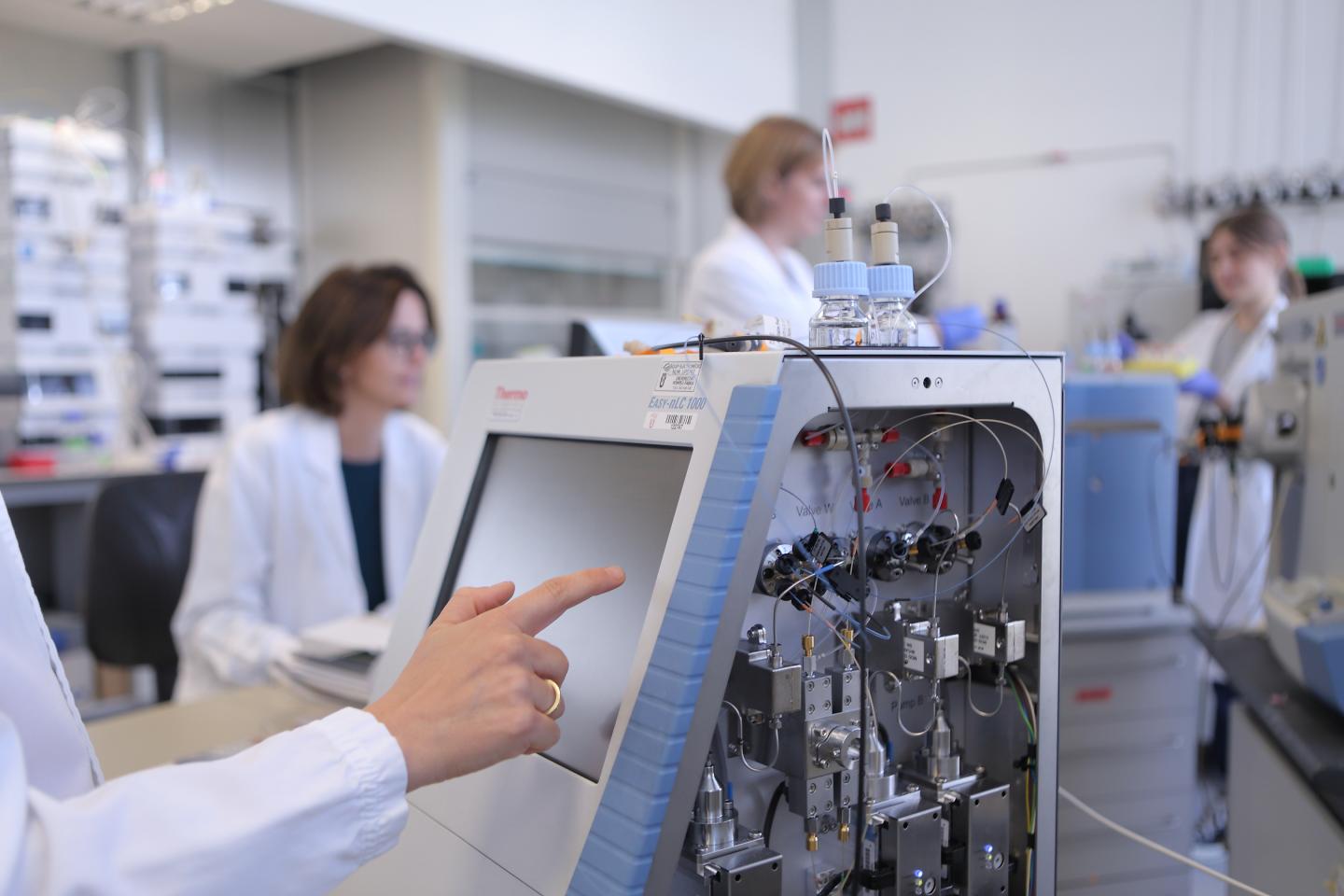
Credit: © CRG 2019. All rights reserved.
Cardiogenic shock is a possible complication of serious heart attack involving an associated mortality rate of approximately 50% of all cases
The combination of this new tool with existing methods renders precise and patient-specific decision-making possible
The research is being led by Dr. Antoni Bayés at Germans Trias and the Proteomics Unit of the CRG and UPF, under Dr. Eduard Sabidó
A joint research effort by the Hospital and the Instituto de Investigación Germans Trias i Pujol (IGTP) is characterising and studying a new cohort of cardiogenic shock patients to predict the risk of having this heart attack-derived complication which, while infrequent, sometimes presents a fatal outcome. It is the first molecular study for risk prediction described for this disease and is based on a proteomic meta-analysis that has made it possible to discover biomarkers and validate their use in decision-making. The new method, combined with existing techniques, will help to implement more precise treatments. Moreover, the know-how has been patented and work is under way to transfer it to the immunological techniques widely used in clinical diagnosis, such as ELISA.
The objective of the study was to obtain a reliable method to predict which post-heart attack cardiogenic shock patients have a greater risk of not surviving. Cardiogenic shock is a possible complication of severe infarction in which the heart is suddenly unable to maintain the required blood flow. It does not occur in all heart attack cases, although it is fatal if it goes undetected and is not treated promptly. In this case, the discovery of four proteins that can be used as biomarkers is a new tool which, in conjunction with existing ones, makes it possible to pre-empt this complication more precisely.
The group led by Dr. Antoni Bayés-Genís at the Hospital e Instituto de Investigación Germans Trias i Pujol (CIBER Cardiovascular investigators) and Dr. Eduard Sabidó of the Proteomics Unit (a node of the ICTS OmicsTech and a member of the ProteoRed-ISCIII network) of the Centre for Genomic Regulation (CRG) and the Pompeu Fabra University (UPF), has identified 4 proteins (from more than 2600 analysed) that identify patients with cardiogenic shock and a poor vital prognosis. The work has been published in the European Heart Journal, the leading publication in the cardiovascular field.
“The article demonstrates the complex work of sample collection we conducted for the Barcelona Discovery cohort, following strict and standard criteria that enabled us to use them to perform an in vitro trial in liquid biopsies to prevent death in patients with cardiogenic shock”, Dr. Bayés explains. “This type of complication, if detected in time, can be treated specifically in order to restore blood flow. The know-how provided by this new tool will help us to decide the best treatment option on a by-case basis”, he continues.
The title of the trial is CS4P, and it is comprised of these 4 proteins, which were discovered with the help of mass spectrometry. “We used a combination of liquid chromatography and mass spectrometry to quantify the proteins present in the cohort samples. It is the first risk-prediction molecular study described for this disease, and the trial has been transferred to ELISA and validated in a European reference cohort”, Sabidó adds.
For the first time ever, an integrated quantitative approach combined with proteomics has been used to discover biomarkers and to be validated as a risk assessment tool in patients with this condition, and in which the level of the four proteins involved was compared to two current evaluation methods. “We have discovered that the new method complements existing ones, making them much more reliable,” Bayés concludes.
The proteomics aspect of the work also furnished valuable information about the mechanisms that trigger cardiogenic shock, as well as the failure of other organs in critical patients. In other words, they could be valid biomarkers for other types of failure. There are a great many possibilities for extending the use of protein biomarkers in serious patients by means of similar techniques.
One of the next steps will be to fine-tune the ELISA assays for clinical use. A patent application has also been submitted for the use of the CS4P cardiovascular shock risk stratification model for the IGTP, the CRG and the UPF.
###
Media Contact
Gloria Lligadas Peñarrubia
[email protected]
Original Source
https:/
Related Journal Article
http://dx.




